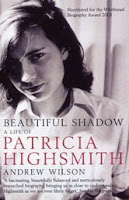Coward would surely have approved the deft mix of comedy and bathos, and perhaps the stylistic flourishes, too. Some bits are related in script form (Soden's own invention, based on documented sources), and there's a final sequence in which Soden vies with (and rolls his eyes at) Coward's other biographers.
I'm especially impressed by the honesty when historical sources are clearly suggestive but we can't know for sure what went on, such as with Coward's early (sexual?) relationships with men. But what really makes this work is the clarity Soden brings. He unpicks the complexities of a whole bunch of different people who often masked their true selves. And he's good on the impact and response to events - whether that's a review, a break-up, a change in legislation. I'm particularly impressed by how vividly he conveys the war: the horror of the Blitz, the work Coward was given (and not given to do), and how that appeared to those not in the know.
Soden briefly covers the moment when, while shooting In Which We Serve (1942), Coward dressed down an actor for arriving late on set, and fired him in front of the whole crew. The story of William Hartnell's tongue-lashing by Noël Coward is also recounted by the film's assistant director Norman Spencer, who says that the role was quickly filled by assistant director Michael Anderson. Spencer expresses shock at Coward's behaviour, and I wonder how Anderson felt about what happened. He later cast Hartnell in Will Any Gentleman? (1953) -- alongside another future Doctor Who, Jon Pertwee -- and I wonder if that was partly from guilt.
(On 25 November 2009, when we recorded my Doctor Who audio story The Guardian of the Solar System, the two actors were required to read in lines as Hartnell's Doctor. Jean Marsh, who had of course worked with Hartnell, advised Niall McGregor to play him as Noël Coward. Which was more helpful than my recommendation to play him as Professor Yaffle from Bagpuss.)
 |
| Philip Streatfeild |
 |
| From the index of Masquerade by Oliver Soden |
Soden, in turn, sent me a link to a page about Philip Streatfeild on the Dulwich College website, which includes a poignant letter written by my great-great-grandfather.

























